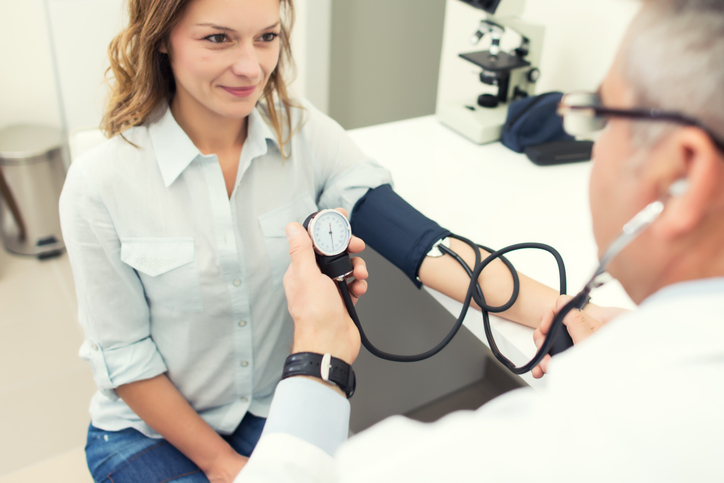What women should know about high blood pressure and menopause
/What women should know about high blood pressure and menopause
During a woman’s reproductive life, from the time of her beginning menstruation to menopause, most women are generally at a lower risk of developing high blood pressure. Thanks to the hormone estrogen, it plays a big role in helping keep blood vessels flexible and it modulates other hormone activities that can contribute to the possibility of a woman developing high blood pressure.
Estrogen, menopause and high blood pressure
But then, menopause happens and suddenly things may change. Women who may have always had normal to even low blood pressure may find for the first time in their life, they are being told their blood pressure is elevated.
This unexpected and unwelcomed transition often occurs when women enter their 50s and 60s, which coincides with menopause. It also coincides with the timing of when estrogen levels drop significantly. When women are younger and before they have gone through menopause, estrogen levels are high which is providing a fairly broad level of protection from high blood pressure.
The primary source of protective estrogen in women of reproductive age is the ovaries. During menopause, hormone levels begin to shift which does include estrogen, leading to a large drop in the amount of circulating estrogen. As the levels of estrogen drops, a woman’s risk of developing high blood pressure rises. These falling levels of estrogen also are a primary cause of menopausal symptoms of hot flashes, mood swings, and appetite changes.
But some researchers believe that the correlation between menopause, decreasing estrogen levels and high blood pressure are largely coincidental. Many state high blood pressure is strongly linked with age and that any increase in blood pressure in older women is related to aging rather than to menopause specifically.
High blood pressure dangers
What is known for sure are the dangers any person faces who has high blood pressure. High blood pressure can cause arteries to narrow over time and harden. According to the CDC, 70 percent of people who have a first heart attack and 80 percent of people who have a first stroke have high blood pressure.
What women need to know about high blood pressure
There are many risk factors for developing high blood pressure. Two common ones are having a family history and age. The average age of U.S. women at the time of menopause is 51 years. The most common age range of when women experience menopause is 48-55 years. Up until age 45, men are more likely than women to develop hypertension, but from 45 to 64 the odds are similar. Then, after age 65, women are more likely to have the condition.
Men or women who are African-American are also at a greater risk for developing high blood pressure.
Other risk factors include:
· Not being physically active
· Being overweight or obese
· Consuming too much sodium (salt)
· Drinking too much alcohol (more than one drink a day for women)
· Having diabetes, gout, or kidney disease
· Women who had high blood pressure when they were pregnant
· Smoking
What women can do to lower their risk
A woman is not able to turn back the clock or prevent menopause from happening, but there are certain things she can do to keep her blood pressure under control:
· Follow the DASH diet to lower sodium
· Exercise on a regular basis
· If smoking, quit
· Limit consumption of alcohol
· Have her blood pressure checked regularly

